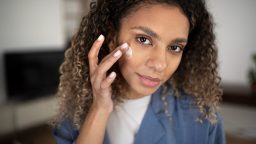A good night’s sleep isn’t just essential for feeling rested and alert the next day—it plays a crucial role in maintaining your beauty and skin health. Often, we overlook the importance of sleep in our beauty routines, but the truth is that sleep is a powerful tool in achieving glowing skin, a youthful appearance, and overall radiance. When you skimp on sleep, your skin can show the signs, but when you prioritise quality rest, it can have transformative effects on your complexion. Here’s how sleep quality directly impacts your beauty and what you can do to make sure you’re getting the most out of your sleep.
- Skin Repair and Regeneration
One of the most significant ways sleep contributes to beauty is by allowing your skin to repair itself. During deep sleep, your body goes into repair mode, renewing cells, tissues, and organs. This includes skin regeneration, where skin cells repair and regenerate at an accelerated rate. The skin produces collagen, an essential protein that helps keep your skin firm and youthful.
- Why It Matters: Good sleep boosts the production of collagen, which helps reduce fine lines and wrinkles. It also helps heal any damage caused by environmental factors like UV rays, pollution, and other stressors.
- What You Can Do: To maximize your skin’s repair process, aim for 7-9 hours of uninterrupted sleep each night. The deeper stages of sleep are when your skin works hardest to repair itself.
- Reduced Dark Circles and Puffiness
Lack of sleep often leads to the dreaded dark circles and puffiness under the eyes. When you don’t get enough rest, blood vessels around your eyes can dilate, causing dark circles. Additionally, sleep deprivation can lead to water retention, which causes the skin under your eyes to puff up.
- Why It Matters: Sleep is essential for reducing the appearance of dark circles and puffiness. As you rest, your body is better able to manage fluid retention and improve blood circulation, helping to brighten the under-eye area.
- What You Can Do: In addition to getting enough sleep, try elevating your head slightly when you sleep to reduce fluid accumulation around your eyes. If you’re prone to puffiness, consider using cooling eye creams with ingredients like caffeine or cucumber extracts to reduce swelling.
- Hormonal Balance and Acne Prevention
Sleep affects the balance of hormones in your body, including the hormones that regulate your skin. When you’re sleep-deprived, your body increases the production of cortisol, the stress hormone. Elevated cortisol levels can trigger the production of excess oil in your skin, leading to clogged pores and acne outbreaks.
- Why It Matters: Sleep helps regulate hormone levels, including cortisol, which in turn reduces the risk of acne. When your body is well-rested, it can better manage inflammation and maintain clear, healthy skin.
- What You Can Do: Aim to get enough sleep to help your body regulate hormone levels naturally. Creating a calming bedtime routine can help reduce stress and prevent the spike in cortisol that contributes to skin flare-ups.
- Improved Skin Texture and Complexion
When you’re well-rested, your skin has time to perform its natural functions, including expelling toxins and maintaining a healthy complexion. Sleep helps your skin look fresher, smoother, and more radiant. On the other hand, sleep deprivation can make your skin appear dull, tired, and lackluster.
- Why It Matters: Sleep enhances blood flow to the skin, which boosts the delivery of oxygen and nutrients. This helps the skin achieve a brighter, more even complexion and a smooth, glowing texture.
- What You Can Do: Prioritise 7-9 hours of sleep each night to ensure your skin has the time it needs to regenerate. Also, consider applying a hydrating night cream or facial oil before bed to lock in moisture and help your skin repair while you sleep.
- Slower Aging Process
Sleep plays an essential role in combating the visible signs of aging. As mentioned earlier, sleep increases collagen production and helps with the repair of skin cells, but it also helps fight the free radicals that contribute to aging. When you skimp on sleep, your skin doesn’t have the time to repair and regenerate properly, leading to more pronounced signs of aging such as wrinkles and sagging.
- Why It Matters: Getting quality sleep can slow down the aging process by helping maintain healthy skin elasticity and tone. Your skin is better equipped to fight off free radicals and environmental damage, preventing premature aging.
- What You Can Do: Prioritise sleep as part of your anti-aging routine, and aim for a consistent bedtime schedule to allow your skin time to rest and rejuvenate fully.
- Hair Health and Growth
Your hair health is also linked to the quality of your sleep. Sleep is a time for your body to regenerate and restore, which includes promoting hair growth and improving hair health. During deep sleep, blood flow to the scalp increases, which nourishes hair follicles and supports healthy growth.
- Why It Matters: Getting enough sleep allows your body to focus on restoring and promoting healthy hair growth. Chronic sleep deprivation can lead to thinning hair and increased hair shedding due to hormonal imbalances and stress.
- What You Can Do: Aim for a full night’s rest to help improve your hair health. You can also enhance hair health by using nourishing oils or hair masks before bed to promote growth while you sleep.
- Skin Sensitivity and Inflammation
Sleep helps regulate your body’s inflammatory response, which is crucial for skin health. Lack of sleep can lead to increased inflammation in the body, which can worsen skin conditions such as eczema, rosacea, and psoriasis. Getting sufficient rest helps reduce inflammation, soothing irritated skin and preventing flare-ups.
- Why It Matters: Sleep helps regulate inflammation in the body, which is important for calming irritated or sensitive skin. When you sleep well, your body has the opportunity to control inflammatory markers, leading to less redness and irritation.
- What You Can Do: To improve skin sensitivity and inflammation, ensure you get adequate sleep every night. Additionally, avoid heavy, irritating skincare products before bed, and opt for soothing, calming ingredients like chamomile or aloe.
- Mental and Emotional Well-Being
Good sleep isn’t just essential for your physical health—it’s also critical for your mental and emotional well-being. Stress and anxiety can take a toll on your skin, leading to breakouts and dullness. When you get a restful night’s sleep, your body has the opportunity to recharge and manage stress more effectively.
- Why It Matters: Sleep helps you manage stress, which in turn benefits your skin. When you’re well-rested, you’re more likely to feel calm, focused, and less likely to experience stress-induced skin problems.
- What You Can Do: Establish a relaxing bedtime routine, avoid screens before bed, and practice mindfulness techniques like deep breathing or meditation to improve sleep quality and reduce stress.
Conclusion
The importance of sleep in maintaining beauty cannot be overstated. Sleep is a powerful tool that helps regenerate the skin, fight aging, maintain healthy hair, and reduce inflammation. By prioritising good sleep habits and ensuring you get enough quality rest, you’re not just helping your body function at its best—you’re also giving your skin and hair the best chance to stay healthy, youthful, and radiant. If you haven’t already, start paying attention to your sleep habits and watch as your beauty improves, one restful night at a time.





